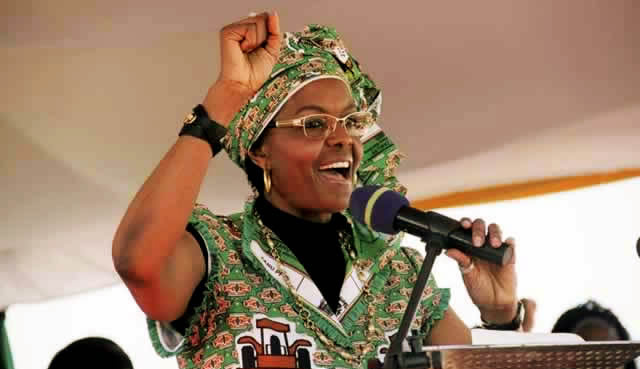Experts hail Amendment Number 1 Bill passage

Farirai Machivenyika and Zvamaida Murwira
The amendment to the Constitution to allow the President to appoint the Chief Justice is a welcome development and is in line with international best practices, legal experts said yesterday. The lawyers said the amendment was not unique to Zimbabwe as in other jurisdictions like the United States, South Africa and Kenya, the President played a significant part in appointment of senior judicial officers.
The Bill sailed through the National Assembly on Tuesday despite spirited attempts by the MDC-T to stifle the proposed law and it now awaits transmission to Senate before its passage where it would be sent to the President for his assent.
In moving the Bill, Vice President Emmerson Mnangagwa, who also oversees the Ministry of Justice, Legal and Parliamentary Affairs said conferring the President with powers to make such key judicial appointments was in line with global best practices.
“In Kenya, they involve both their President and the National Assembly — not the interviews as previously debated. In South Africa, it is the President and the National Assembly; and in America, it is the President and the Senate.
“It is only in Zimbabwe that the President is involved after the public interviews which we are now removing,” said VP Mnangagwa.
Harare lawyer and Mudzi South legislator Mr Jonathan Samukange welcomed the amendments saying it was in sync with what is done in most countries.
“I am happy that this amendment has gone through because it is consistent with best practice in the world. If the current position had remained, Zimbabwe would have been one odd country in the world and that is undesirable.
“The Chief Justice is not only the head of the Judiciary, but also plays a part in the executive by attending State functions and consults with the President. He has a direct link to the President so the President has to appoint someone he can work with,” he said.
Mr Samukange represented University of Zimbabwe law student Romeo Zibani in a High Court challenge seeking to stop interviews to replace the then Chief Justice, the late Godfrey Chidyausiku.
“I don’t buy into the argument that the Constitution is very young. Just like a sick person you don’t say they have just been sick for a few days, so we can’t take them to the doctor, or that let’s wait for five years before we seek treatment,” said Mr Samukange.
University of Zimbabwe law lecturer, Professor Lovemore Madhuku rapped the MDC-T for seeking to scuttle the amendment and described them as hypocrites.
“I am disturbed by the MDC-T attempts to try to scuttle the passage when they were responsible for its promulgation during the inclusive Government. If you do not want amendments to be made too soon you simply ensure that it is captured in the Constitution.
“They thought that they would remain in power. The MDC-T was even less clever than those who drafted the Lancaster Constitution more than 30 years ago because they included a clause in the Constitution which said it would be amended only after 10 years,” said Prof Madhuku.
He said the MDC-T had itself to blame when it expelled 21 legislators.
“On Tuesday, they wanted to bank on Zanu-PF MPs by calling for a secret ballot. How do you criticise a person who follows the law,” said Prof Madhuku.
Harare lawyer Mr Tendai Toto also welcomed the changes saying they brought dignity in the selection process of the highest and most senior offices of the Judiciary.
“Transparency and accountability does not necessarily mean that prospective judges to occupy the highest offices in the Judiciary must appear in public to get interviewed.
“Often, the interviewers are way junior and in other cases unqualified to contribute in a meaningful way towards the “fit for purpose” principle,” said Mr Toto.
“The mechanisms and appointment process envisaged in the amendment rightly support the dignity and honour of the selection process and appointment of the judges concerned.”
MDC-T vice president, Advocate Nelson Chamisa said they were opposed to the amendments.
“We are opposed to the amendments through and through because it’s not in the national interest or public interest. The Constitution is still young having been a product of a people drive process through an expansive and expensive exercise.
“So, to unilaterally amend the will of the people, is a subversion of the document called the Constitution. The Constitution was fine in its old state to ensure checks and balances,” Advocate Chamisa said.
Another lawyer, Mr Terrence Hussein said allowing the President to make such key judicial appointments was not unique to Zimbabwe.
“It is not at all unique to Zimbabwe. The Constitution can be amended as long as one is doing it in terms of the laid down procedure,” said Mr Hussein.












Comments